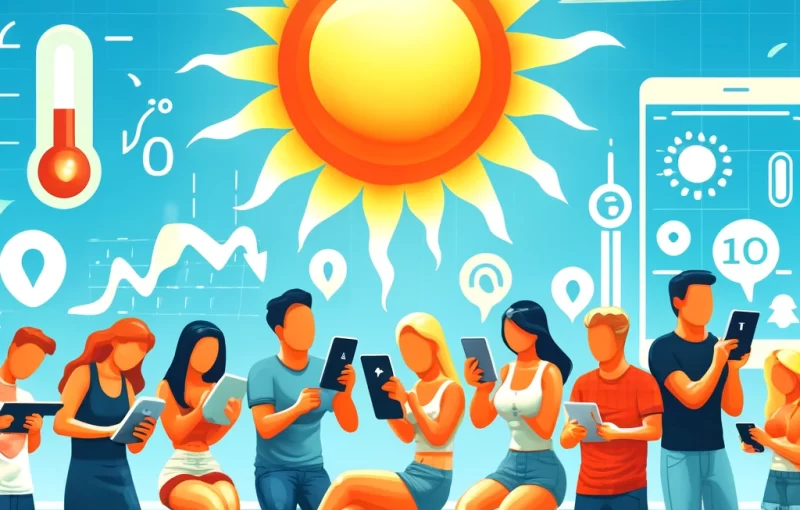
The Heat is On: How Access to Weather Information Can Save Lives in Extreme Heat
by Jon Scaccia April 29, 2024Here’s my current forecast.

We take it for granted that not everyone has access to this information.
Extreme heat events (EHEs) are becoming more frequent and severe across the globe due to climate change, with vulnerable regions like Central Vietnam feeling the heat quite literally. As these events pose a significant threat to public health and economic stability, understanding how communities can better prepare and adapt is crucial. A recent scientific study from Central Vietnam sheds light on the pivotal role that accessing weather information plays in mitigating the impact of heat-related illnesses.
The Power of Information During Heatwaves
The study, conducted through a survey of hospitalized individuals who suffered from heat stress, highlights a compelling correlation: access to weather information significantly reduces the cost of illness (COI) associated with heat-related conditions. Multiple channels, including social media and official agencies, were instrumental in this reduction, underscoring the value of effectively disseminating weather-related information.
Social Media: A Game Changer in Climate Adaptation
Interestingly, social media emerged as a particularly effective tool for climate adaptation. By quickly disseminating weather warnings and health advisories, platforms like Facebook and Twitter can inform people faster than many traditional news outlets. This rapid information flow enables individuals to take immediate preventative actions such as seeking shade, staying hydrated, and using cooling centers, thereby potentially saving lives and reducing emergency healthcare visits.
The Need for Clarity and Accessibility
However, the study also points out a critical need for improving the clarity and accessibility of weather information. Official channels, while trustworthy, often fail to communicate in a way that is easily understandable to all, particularly households at different income levels and those with less educational background. Tailoring communication to meet the diverse needs of the population can enhance public understanding and trust, which is essential for effective climate change adaptation.
Bridging the Information Gap
A significant proportion of the population, especially in remote or rural areas, still lacks access to reliable weather information. This gap leaves them particularly vulnerable during extreme heat events. The study calls for targeted efforts to expand the reach of weather information to these underserved communities. By doing so, we can ensure that more people have the knowledge and resources to protect themselves against the dangers of heatwaves.
Visualizing the Impact
The use of visual aids, such as infographics and maps, can greatly enhance the public’s ability to understand weather risks and the necessary precautions during heatwaves. These tools can translate complex meteorological data into clear, actionable information accessible to everyone, regardless of their educational background.
Call to Action: Engage and Prepare
It’s not enough to simply provide information; engagement is key. Public health campaigns and local community programs can play a significant role in raising awareness about the risks of extreme heat and the best coping strategies. Encouraging community participation in preparedness drills and the development of local heat action plans can empower individuals and foster a community-based approach to climate adaptation.
Join the Movement of Health Innovators – Subscribe for Weekly Insights!
Step into the forefront of public health innovation with ‘This Week in Public Health.’ Every edition brings you closer to the latest developments in research, community health, and advocacy. It’s more than a newsletter – it’s your resource for becoming an informed and active participant in the health community. Subscribe for free and join a network of individuals dedicated to making a lasting impact in public health!
About the Author
Jon Scaccia, with a Ph.D. in clinical-community psychology and a research fellowship at the US Department of Health and Human Services with expertise in public health systems and quality programs. He specializes in implementing innovative, data-informed strategies to enhance community health and development. Jon helped develop the R=MC² readiness model, which aids organizations in effectively navigating change.
Leave a Reply